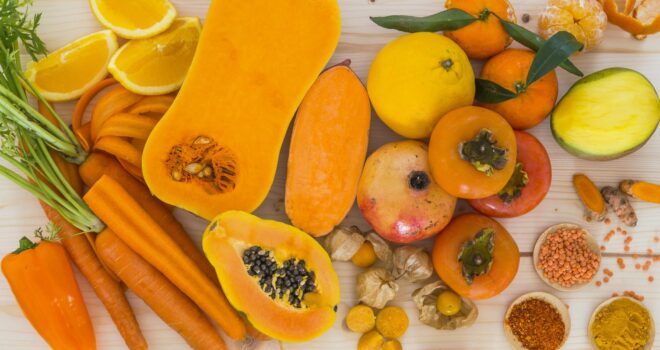The most colorful fruits and vegetables may lengthen our life expectancy. Why? They are high in color due to alpha-carotene, an anti-oxidant in the carotenoid family whose concentration in foods may be intimately linked to risk of cancer and cardiovascular disease.
Alpha-carotene : stronger than beta-carotene
The carotenoids, including beta-carotene, alpha-carotene, and lycopene, are vitamin A precursors. These pigments produce yellow, orange, red, and dark green in fruits and vegetables. They act as antioxidants, fighting against the damage caused by oxidation, which plays a role in the development of cardiovascular diseases and cancers. However, while alpha-carotene is chemically similar to beta-carotene, several studies seem to demonstrate that alpha-carotene is much more effective in decreasing mortality for certain forms of cancer (lung, prostate, liver, etc.) and reducing the risk of cardiovascular mortality. Research on the subject tends to show that the higher the alpha-carotene blood concentration, the more the risk of all-cause death diminishes.
In which vegetables is it found?
Scientists continue to study those results, trying to understand why and at what dose this protection occurs. However, researchers underline the importance of increasing fruit and vegetable consumption, especially that of orange and yellow vegetables, which are particularly rich in this pigment. So add color to your plate by eating carrots, sweet potatoes, pumpkin and winter squash, other squash, mandarin oranges, cantaloupe, and apricots. And don’t forget the red and green vegetables that contain alpha-carotene, too, including beets, broccoli, green beans, peas, green turnips, cabbage, and green salad.



 Chard
Chard  Carott
Carott  Vegetable garden: growing asparagus
Vegetable garden: growing asparagus 









